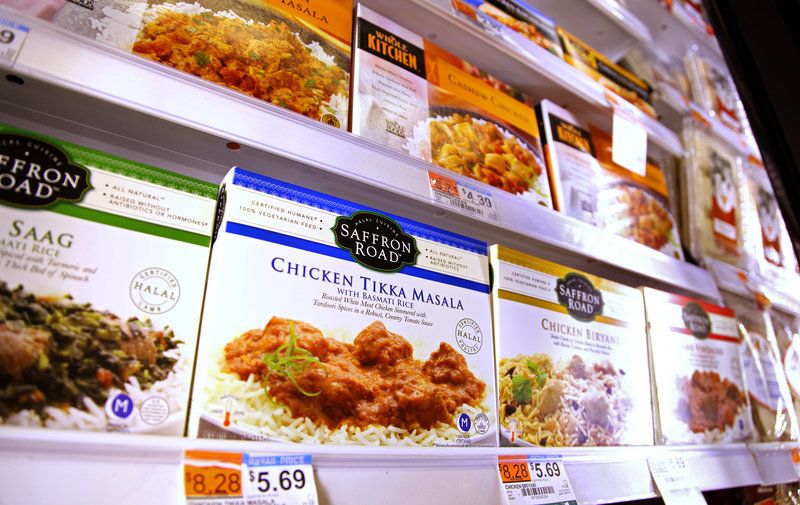
In this op-ed for NPR, writer Radiyah Chowdhury talks about the popularity of halal food in the U.S. which, ironically, is occurring in the shadow of a “darker trendline”…. namely, the rise of Islamophobia. [Halal cuisine is defined as any type of food adhering to Islamic dietary prescriptions — free of pork, its byproducts, and alcohol].
Shahed Amanullah created the online halal restaurant guide Zabihah.com (a vital tool for those looking for halal eateries) and says he feels that the correlation could be due to a form of political statement. “This was very much driven by a reverse Trump effect — because of the highlighted attention towards Muslims in the wake of Muslim ban. American communities and businesses are wanting to show their solidarity and support for their Muslim neighbors.”
Krishnendu Ray, who chairs the department of nutrition and food studies at New York University, gave a darker assessment, citing historical examples with communities that underwent suspicion and bigotry as their cuisines became popular, pointing to World War I and the anti-German sentiment which paralleled a rise in popularity of German cuisine in America (see frankfurters = hot dogs.) Ray calls this idea “culinary colonialism,” a system of acquiring cultural capital. The colonizer seizes the social assets of a community by claiming their culture (such as their cuisine). “This omnivorousness is related to consuming the “other,” says Ray. “Just because you are consuming something doesn’t mean you have any particular respect for that ‘other.'”
Social implications aside, Bloomberg reports that sales of halal food in grocery and convenience stories reached $1.9 billion in the U.S., a 15% increase from 2012. The halal certified food and beverage market was estimated a $415 billion industry in 2015. And all we can say is – enjoy while you’re protesting!



